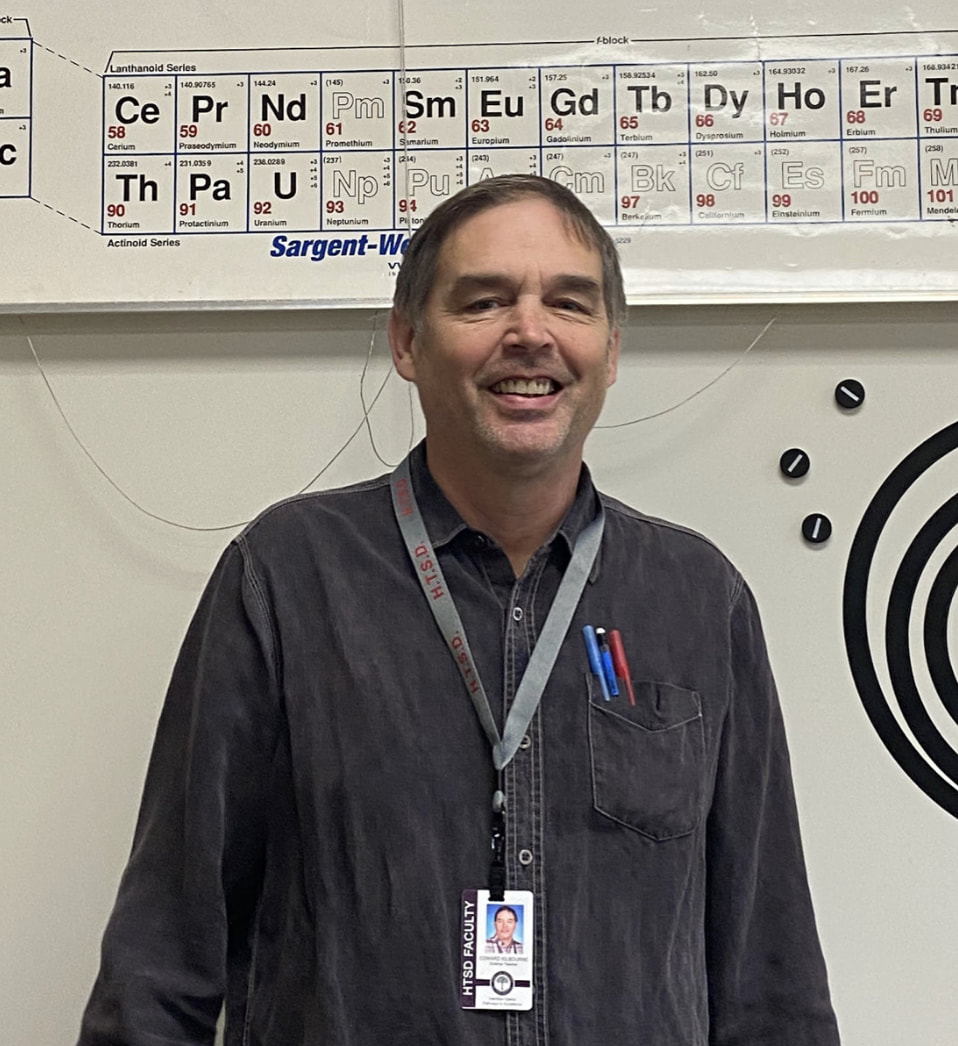Interview | Dr. Kilbourne
by Jaime Asmal-Martinez
|
Dr. Kilbourne has been teaching at Nottingham High School for 10 years. He has taught Chemistry and Integrated Science. He was very kind and agreed to let me interview him and ask some questions.
Jaime Asmal: What did you want to be when growing up? Why did it interest you? Dr. Kilbourne: Biologist. The house I grew up in was surrounded by woods and wetlands. I found all the plants and animals fascinating. There were all kinds of plants, insects, amphibians, reptiles, mammals, and birds. Jaime Asmal: During what year did you have the most fun teaching? Dr. Kilbourne: A few years ago I taught Integrated Science to freshmen. Having freshmen made them the hardest and most challenging classes I taught. But it was also the most fun. Since Integrated covers a broad range of science topics, before I started teaching Integrated I bought gears, motors, LED lights and all kinds of electronic devices. I also borrowed electronic meters and supplies from Physics across the hall. I had students build all kinds of things like cardboard electric cars that ran on batteries and conductivity meters. I also had the students build homemade motors using only magnets, batteries, wires, rubber bands and tape. Jaime Asmal: What brought you into teaching and why do you do it? Dr. Kilbourne: When I majored in Chemistry in college, I always had teaching as a career in mind. However, I ended up going to graduate school and doing research at Universities and Pharmaceutical companies for about 25 years before I started teaching at Nottingham. Jaime Asmal: If you had an occupation before teaching, what was it and what did you do? Dr. Kilbourne: As I mentioned before I did laboratory research. Working in science labs was something I really loved. I was able to work in many areas over the years trying to understand things like: 1. How do nerve cells adapt to stress? 2. How are cells in coronary arteries affected by cholesterol and cardiovascular disease? Jaime Asmal: How much time do you take on planning the lessons for your students? Dr. Kilbourne: The amount of time I spend on lesson planning varies. Sometimes I teach things I have taught many times before and it does not require much planning. However, I often spend time changing lessons that seemed to not have worked in years past. For instance right now I am converting a lot of lessons into things students can do without laptops or cell phones. This is because with Google Classroom and cell phones, I think students are using electronic devices too much. Jaime Asmal: For you, what is the hardest part of teaching? Dr. Kilbourne: I observe other teachers and they appear to be a lot calmer than I feel in class with students. It makes me stressed when students are not listening and being loud. I feel like Homer Simpson in the series “The Simpsons”. Occasionally, I want to just yell like Homer does when he can’t handle his son Bart. He just yells out “BAAAAAARRRRRT!!!!" |
